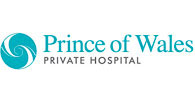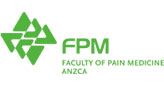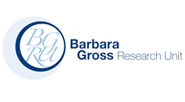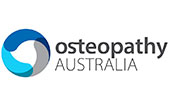
1300 722 206
Contact Us
While it’s not always possible, planning for pregnancy is important and can help to avoid unnecessary complications. We’ll sit down with you to discuss your medical history and take some blood tests to help identify any issues that may have consequences further down the track. For example, there are certain medications that you shouldn’t be taking if you are pregnant, and there are common diseases you may want to be vaccinated against before trying to get pregnant.
The highest level of specialist qualification possible in the area of Reproductive Endocrinology and Infertility, the CREI (Certification in Reproductive Endocrinology and Infertility).
Dr Rachael Rodgers is a fertility specialist & gynaecologist who has completed sub-specialty training in reproductive endocrinology (CREI). She has a breadth of experience in managing all aspects of fertility including polycystic ovarian syndrome, ovulatory disorders, recurrent miscarriage, endometriosis, tubal disease and genetic conditions that affect fertility.
Rachael takes a holistic approach to fertility treatment, thoroughly investigating the cause of infertility before proceeding to treatment. Through her association with Genea, she is able to provide a full range of fertility services including ovulation tracking, ovulation induction, intra-uterine insemination (IUI), in vitro fertilisation (IVF), intra-cytoplasmic sperm injection (ICSI), pre-implantation genetic diagnosis (PGD) for known genetic diseases and pre-implantation genetic screening (PGS) for chromosomal abnormalities of embryos. Rachael has an interest in fertility preservation, providing both social egg freezing services as well as medically indicated egg freezing for women with conditions that may damage future prospects of conceiving. Rachael consults from her Chifley Towers rooms.
Pregnancy is exciting, but it can also be quite challenging – both mentally and physically. To help reduce stress and discomfort, we offer a high standard of allied health support throughout your entire journey through the stages of pregnancy. We’ll work closely with your obstetrician to ensure our advice complements their services.
We can provide the following support for your pregnancy and beyond:
All our allied health professionals have undergone additional training in pregnancy and post-partum care to provide you with the best care available. We have many years of experience working with expectant and new mothers, and have helped alleviate pain associated with a variety of ailments listed in the table below.
Common complaints during pregnancy | Common complaints after birth |
|---|---|
Carpal tunnel syndrome | Dequervain’s disease (thumb pain) |
Thoracic outlet syndrome | Tendinitis |
Neck pain or headaches | Hand and wrist pain with baby-handling |
Pelvic girdle pain & sacroiliac joint pain | Neck and upper back pain with breastfeeding |
Upper back or rib pain | Pubic pain and pubic separation (diastasis pubis) |
Pins and needles in the hands | Post natal depression |
Pubic symphysitis | Anxiety |
Hip or groin pain | Prolapse |
Low back pain or disc pain | Bladder and bowel leakage |
Diastasis recti (abdominal separation) | Pelvic and perineal pain |
Knee and foot pain | Pelvic floor muscle check ups |
Swelling of the hands and feet | Pudendal neuralgia or nerve pain |
Mental health fitness preparation plans | Constipation and straining |
Constipation and straining | Third degree tear |
Pelvic floor muscle education | Fourth degree tear |
Morning sickness and nausea | Intercourse pain |
Many changes occur in your musculoskeletal system as your body adapts to your growing baby and softens in preparation for delivery. Small imbalances in your posture or the way you walk can start to cause pain and discomfort as your body changes. Our osteopaths Amy Corcoran and Elizabeth Howard can help ease areas of tightness and relieve pain at areas with loose ligaments or increased movement. It’s also a good time to treat any ‘old’ areas of stiffness, such as your neck and upper back when you have the added benefit of hormonal laxity, or looseness in the joints.
Many women find one treatment per month useful in preventing common pain problems, and then increase the frequency of treatments as the due date becomes closer.
If you have a specific enquiry for our WHRIA Osteopaths
Click HereYour pelvic floor muscles play an integral part in the support of your pelvic girdle and organs during pregnancy. They need to be flexible for labour, as well as in strong condition for bladder and bowel function both during and after pregnancy. Our pelvic floor physiotherapists Sherin Jarvis & Donna Namdaran can provide guidance on specific exercises for you, give advice on bladder and bowel management as well as develop a plan for the return to appropriate exercise in the postnatal period.
Having a baby is a major life-changing event and we provide a range of psychology, counselling and clinical hypnosis services to equip you to cope with the challenging pre and postnatal periods. Hypnotherapy can also be a useful tool for managing pain during labour.
Numerous studies have shown that if you have a history of mental illness, your postnatal period will be smoother if you are equipped with practical ‘mental fitness’ tools that you can use before and after giving birth. Our psychologist Tanya Wollstein can help formulate a plan with you, helping to ensure you have a supportive network around you during this exciting yet challenging time.
Pregnancy is often associated with pain, but fortunately there are many options you can choose from to limit the pain you experience during pregnancy and childbirth. Dr Jason Chow and Dr Lauren Kite are experienced in all aspects of obstetrics, gynaecology and pain management, both during and after pregnancy, and can discuss the safe options for medications, ongoing management and any necessary surgical interventions.
If you’d like more information please download a fact sheet using the link below or from our Health Information page.
If you have a specific enquiry for our WHRIA specialists
Click Here








© 2025 Women's Health & Research Institute of Australia. Privacy Policy | Terms of Use | Website by Phil Kurth